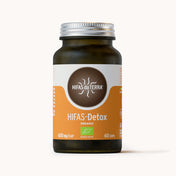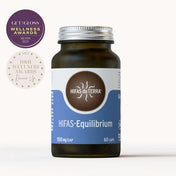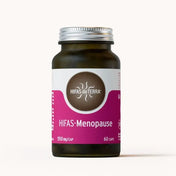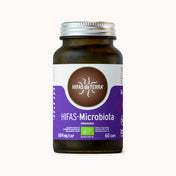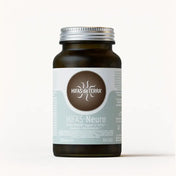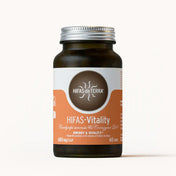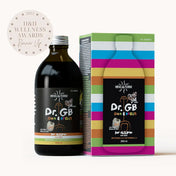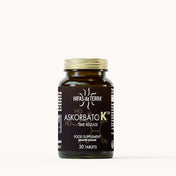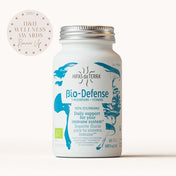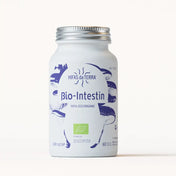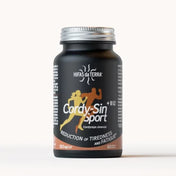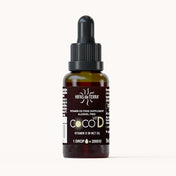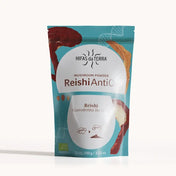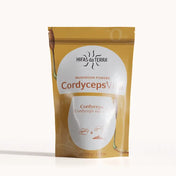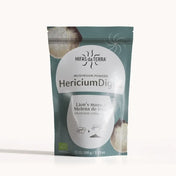Table of Contents
The human gut is a complex, fragile ecosystem that affects a person’s overall health. The important role it plays in metabolic, immunological, and neurological health makes preserving the bacterial balance in the gut critical. Although antibiotics can help treat infection, they can have negative impacts on gut health. So, how do you prevent antibiotics from destroying your gut?
The Importance of Gut Health
The gut microbiome, sometimes referred to as “the second brain”, is made up of trillions of bacteria that maintain the digestive system. These bacteria play an important role in digestion, absorption, regular bowel movements, and the creation of necessary vitamins and enzymes. In addition, the bacteria in the gut help regulate the immune system and prevent infection.
Furthermore, when these bacteria are out of balance, problems can arise. For example, an imbalanced gut microbiome can affect the body’s ability to effectively absorb nutrients, and can lead to digestive issues, like bloating, cramping, and gas. It can also contribute to conditions, such as obesity, depression, diabetes, and other chronic illnesses.

Other Factors That Can Damage the Gut
In addition to antibiotics, other factors can damage the gut as well. Poor diet, alcohol, sugar, and other foods can all affect your gut health. Stress can also affect the balance of bacteria in the gut and can weaken the gut barrier, which protects the intestinal lining from foreign bodies.
Finally, environmental factors, such as a lack of sleep and exposure to toxins, can also have an impact on the bacterial balance in the gut.
How to Prevent Antibiotics from Destroying Your Gut
To prevent antibiotics from destroying your gut, there are several steps you can take. Firstly, talk to your doctor about the best antibiotic treatment plan for you. If you must take antibiotics, make sure to take a probiotic supplement. Probiotics can help maintain the balance of bacteria in the gut and restock the good bacteria that the antibiotics destroy.
It is also important to maintain a healthy, balanced diet, including plenty of fruits and vegetables. This will help provide the essential nutrients to keep the gut healthy. Additionally, limiting your intake of processed and sugary foods will promote the growth of good bacteria in the gut.
You should also make sure to get plenty of rest and manage your stress levels, as these can have a negative impact on your gut health. Finally, if you are exposed to environmental toxins, take precautions to reduce your exposure as much as possible.

Additional help to support your microbiota
- Consume a Diet Rich in Probiotic Foods: Probiotics are beneficial bacteria that can help repopulate the friendly bacteria in your gut after antibiotic use. Eating fermented foods, such as kimchi, sauerkraut, miso, yoghurt, and kefir, can help replenish the balance of gut bacteria.
- Take a Probiotic Supplement: Taking a probiotic supplement can help boost your levels of friendly bacteria, restoring your gut microbiome. Look for probiotics that contain at least five different bacterial strains.
- Eat Prebiotic Foods: Prebiotics are fibre-rich carbs that feed the probiotics, helping them to grow and thrive. Foods such as garlic, onions, bananas, oats, apples, and Medicinal Mushrooms are all great sources of prebiotics.
- Consume Fermented Foods: Fermented foods are an excellent source of beneficial bacteria and can help restore the gut microbiome after antibiotic use. Examples include kimchi, sauerkraut, kefir, and yoghurt.
- Add Fiber to Your Diet: Eating a diet rich in fibre can also help replenish the beneficial bacteria in your gut. Good sources of fibre include apple skins
Medicinal mushrooms such as Reishi, Lion's Mane, and Shiitake are widely regarded as effective remedies for strengthening the immune system and supporting the gut microbiome. They combat antibiotic-associated disturbances in gut flora by aiding the digestive system's natural balance and preventing the proliferation of harmful bacteria. Many scientists recommend taking medicinal mushrooms and probiotic supplements along with an antibiotic prescription.

Summary
Gut health is essential to overall well-being. The bacteria in the gut play an important role in digestion, absorption, and the immune system. Antibiotics can help treat infections, but they can have negative impacts on your gut health. To prevent antibiotics from destroying your gut, it is important to talk to your doctor, take a probiotic supplement, follow a healthy diet, get plenty of rest, and limit your exposure to toxins.
By taking these steps, you can ensure that your gut is healthy, and you can prevent the negative effects of antibiotics on your gut health.
